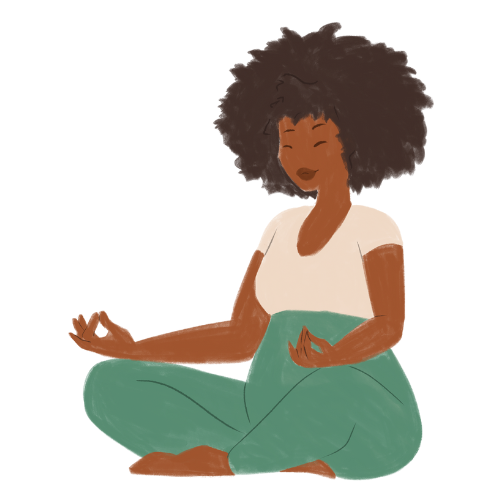Life Lessons We Can Learn from Kids to Become Better Adults
Any writer, regardless of their niche, has a target audience, and the only way to understand that audience is to get to know them. So as a children's writer, you can imagine that I work with kids all the time - from school readings and book signings to teaching toddlers and early crawlers, and even babysitting. One of the biggest pieces of advice I can give to aspiring authors is that your work has to be something you love because you'll be working at it pretty much all of the time. Fortunately, I love what I do because I learn something new about it every day, which keeps things interesting. And my biggest teachers are the kids.
Several years ago, the brilliant 12-year-old author Adora Svitak gave a remarkable TED Talk. She proposed eliminating the term "childish" due to its numerous negative connotations. Her reasoning was that, in her experience, the individuals who truly behave childishly are the adults who chastise the children they intend to discipline. Therefore, she argued that the term should be thrown out the window. As an alternative, she encouraged the audience, largely composed of adults, to learn from kids, and I couldn't agree more. If you haven't had the chance to watch this talk, I urge you to take 8 minutes out of your day to do so because it's one example of the many ways children can teach adults how to be better people, how to understand compassion, and how to treat each other with honest-to-goodness respect.
From my personal experience, there are many lessons to be learned from kids, but there are a few that stand out stronger than the rest:
Keep going, even if you have a boo boo: When your little one falls down, most likely they’ll cry. Sometimes they even take a pause to process what happened…and then the waterworks. But the remarkable thing is the inherent resilience that kids have built into their system. The moment they get distracted, they quickly forget about the boo-boo and move on with their day. So if you have a grown-up boo-boo, pull yourself up by the bootstraps, find a distraction, chase a butterfly, and move on with your day.
Be Active: Kids are naturally active creatures - just ask any parent. While most adults need to recharge their batteries when taking care of their young ones, kids need to burn off the mountainous levels of energy in their system before they can settle down for naptime. The thing is, as adults, we need to exhaust our energy as well. We need to move. People are creatures of habit, and if you're used to sitting at a computer all day, hunching your shoulders for hours on end without taking a few minutes to mobilize your joints and muscles, you'll probably feel groggy, achy and winded. Engaging in a few minutes of exercise each day is great for your physical and mental wellbeing, and there are plenty of options to choose from. Oh, and why not change the rules and make naptime a grown-up thing too?
Pay attention to details: If you’ve ever had the experience of reading a picture book to a child, you’ll notice that they pay attention to the weirdest things. Maybe they’ll point out something in the illustrations that has nothing to do with the story, or they'll notice that your voice needs to change when reading a certain character. They might even find a connection to something in the book related to something their best friend told them about at a playdate. No matter what it is, kids will point out every little detail they discover. And noticing details means they’re listening. Little things make a big difference in conversation, and grown-ups can learn from this by also paying attention to details. Even something as simple as saying a person's name can change the way they respond to you, because it shows that you're invested in the conversation and in them.
If you can’t walk, crawl. If you can't crawl, roll: When my baby cousin Annie was just a few months old, she wanted to move around, but her mobility was limited. While other babies were crawling, Annie was still having a bit of a hard time. But did this stop her? No! Annie figured out an alternative: she started to roll. Talk about innovation! There's a big lesson for grown-ups here. How many times do we say, "If only I had this, I could have done that?” Well, according to baby cousin Annie, there are no excuses. If you want something, but are faced with certain limitations, figure out a way to roll around it. Be innovative and find creative solutions.
Get up early: Rise and shine! Kids are early risers, so if you want to keep up with them, get up early too. Seize the day and make the most of your mornings. And hey, if you need to catch up on sleep, you can always squeeze in a naptime later.
Ask questions: Kids don’t just ask questions. They ask LOTS of questions. When did it become taboo to ask questions? Embrace curiosity! Asking questions should never be taboo. It's like asking for directions on a road trip - if you don't know something, just ask! It's better to ask and learn than to remain in the dark.
Brutal honesty: When I'm at a book reading, I can immediately tell if a story resonates with kids because they'll express their reactions honestly. If they enjoy it, they'll laugh, participate in call and response sections, and ask for more. But if they don’t like it…Oh. You’ll know. Kids provide feedback without sugar-coating their feelings, and as adults, we can learn from this. We should honor our own feelings too. If we like something, we should go for it, and if we don't, it's okay to say no without feeling the need to sugar-coat our opinions. Honesty in expressing our feelings can lead to more authentic interactions and feedback.
Laugh at yourself: There’s a picture of me and my mother when I was a chubby little toddler, looking at my reflection in the mirror and laughing a genuine belly laugh at myself. Even just looking at that picture now makes me giggle inside, and it's the best feeling in the world. When we laugh at ourselves, we let go of any inhibitions and stop caring about the judgment of others. It allows us to enjoy ourselves and not take life too seriously, and this can lower our stress levels giving us the capacity to focus on what really matters with a clear head.
The lessons we can learn from kids are endless, and we can learn something new every second we spend with them. They truly are our greatest teachers, and the biggest gift we can give them is to listen.










Why do we so often save gratitude for the very end of the year? Thanksgiving kicks off the holiday season, gathering us around the dinner table sparking the notion of giving thanks, as the leaves turn quietly from green, to red, to brown, and then to dust. Maybe this being the designated time for gratitude makes the very idea of giving thanks feel more like a chore than a joy as we search for something meaningful to say. But what if we took a deeper dive into this notion of “Gratitude”?